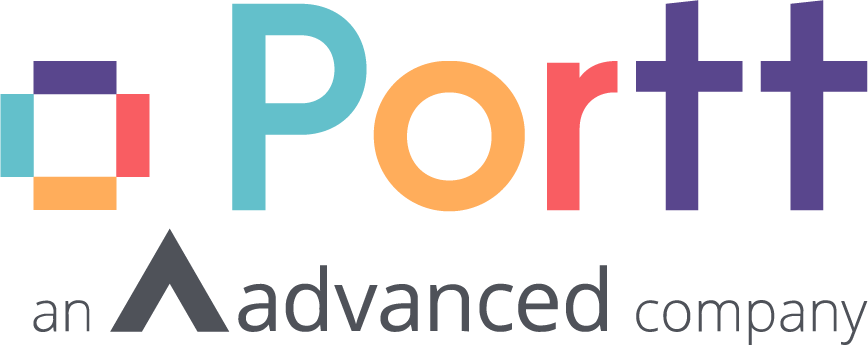
Our recent study of Australian and New Zealand procurement professionals found there’s a key team-based factor contributing to success: the ability to prioritise interpersonal skills.
Most procurement professionals prefer focusing on processes and practicalities. It’s easy to see why we find comfort in the quantifiable, but as we delve deeper into the essence of what truly drives success in procurement, we discover the importance of those oft-neglected soft skills: strategic supplier relationship management, conflict management and resolution.
The ability to navigate conflicts, foster strong relationships with suppliers, and manage the nuanced interplay of various stakeholders becomes far more valuable than the mere ability to follow a set of technical procedures.

Which interpersonal skills are important in procurement?
While technical knowledge and procedural adherence form the backbone of procurement operations, the mastery of interpersonal skills is what truly propels procurement professionals towards achieving optimal outcomes.
#1. Strong Communication Skills
It may be a tired corporate cliche, but by looking at exactly what strong communication means in a procurement context, it becomes an invaluable key to success. The ability to clearly articulate needs, expectations, and requirements to suppliers, as well as the capability to listen actively to their feedback and concerns, is crucial. Clear, concise, and open communication fosters transparency and trust, which are essential for long-term partnerships.
#2. Relationship Building
The ability to build and maintain strong relationships with suppliers goes beyond transactional interactions. It involves understanding the supplier’s business, recognising their challenges, and working collaboratively towards mutual goals. A procurement professional who invests time in visiting supplier facilities, engaging in joint innovation initiatives, or offering constructive feedback strengthens the relationship, leading to preferential treatment, better terms, and enhanced cooperation in times of crisis.

#3. Client Service Skills/Customer Centricity
Customer centricity becomes complex when managing the expectations of a whole suite of internal and external stakeholders. Procurement professionals must possess the ability to understand and anticipate the needs of all parties, ensuring procurement strategies align with overall business objectives and customer satisfaction goals across the board.
#4. Negotiation Skills
Negotiation directly impacts the company’s bottom line and the value derived from supplier relationships. Effective negotiation involves more than just pushing for lower prices; it requires a strategic approach that seeks win-win outcomes for both parties. It ensures the company maximises value while maintaining healthy, productive supplier relationships.
#5. Influencing Skills
Influencing skills are about crafting compelling arguments, leveraging data, and aligning with the overall business strategy to persuade others to see and embrace your vision. This skills set allows procurement professionals to sway decisions and gain buy-in from both suppliers and internal stakeholders without relying on formal authority. It’s particularly important when driving change or adopting new procurement strategies and is a key success driver when moving to strategic procurement.

Why are interpersonal skills the key to success in procurement?
Technical and analytical skills can be taught, even automated. Interpersonal and delivery skills are necessary to drive impact.
#1. Better communication with stakeholders
The broader business must understand the value of procurement experts and how we operate. We bring something the business doesn’t already have – commercial acumen, insight, or knowledge of the category and how-to-buy strategy.
“In procurement you’re not just presenting facts. You’re trying to motivate, convince, argue. It used to be, you needed to be good at analytics, excel reporting. Those skills are still important, but not as critical now that there’s more tools and systems to help people be more effective.”
– Head of Procurement, Private Sector
#2. A human touch is still crucial in the digital age
At its core, procurement is a field that revolves around nuanced stakeholder and relationship management, strategic thinking, and an analytical mindset—attributes that are inherently human and challenging for a computer to replicate.
While procurement may not be rocket science, it demands a sophisticated blend of skills that technology alone cannot fulfil. Embracing procurement software to streamline operations, enhance data analysis, and improve efficiency is crucial, but it is equally important to recognise that the human element and senior-level procurement skills are irreplaceable.
#3. Feeling comfortable with conflict is key to success
Procurement involves complex problem-solving and relationship management. A procurement professional may be armed with data and analytical skills, but all the statistics and numbers in the world can’t resolve conflict or ensure harmony throughout a cross-functional, multifaceted team.
“You do need to be comfortable with conflict. The best procurement people are problem-solvers. How do you motivate and encourage or influence a business that they should come along the journey? They should invest the time and effort into the supplier relationship?”
– Head of Procurement, Private Sector

How to improve interpersonal skills capabilities across your team
#1. Embrace technology to alleviate time pressure
Skill progression flourishes in environments where time pressures are reduced, and a supportive leadership culture promotes strategic thinking. Such settings allow individuals to focus on learning and innovation, free from the constraints of tight deadlines. Leadership’s encouragement of strategic thinking enhances individual growth and contributes to the collective skill set, recognising that skill development thrives with support and time for strategic contemplation.
Procurement software can automate time-consuming analysis and manual tasks and allow team members more time to be strategic.
#2. Encourage a strategic mindset
Operating on a “this is the way we’ve always done it” mentality is counterintuitive to success. While processes and SOPs seem like the way to get better results, the reality is that the freedom to be strategic and critically analyse every client on a case-by-case basis enables procurement teams to deliver real benefits to businesses.
#3. Hire for personality
Interpersonal skills can certainly be taught and fostered, but often we find people need to have innate abilities in this sector. While technical skills, data analysis and even analytical skills can all be taught and often even automated or outsourced to AI, interpersonal skills and the ability to build relationships will always be at the core of strategic procurement.
“I think it’s a combination of innate skill set, mentality and approach. The easiest thing is to teach procurement skills. It’s the classic: recruit for capability and mindset. You can teach technical skills later.”
– Head of Procurement, Private Sector

Final Thoughts
The mastery of soft interpersonal skills is fundamental to driving successful procurement outcomes. Strong communication fosters transparency, relationship building creates mutually beneficial partnerships, client service skills ensure alignment with business and customer needs, negotiation skills secure valuable agreements, and influencing skills facilitate strategic change. Together, these skills empower procurement professionals to navigate the complexities of their role, contributing significantly to their organisation’s success.
Download the report: Future-Focused Procurement: Forging Ahead in ANZ



